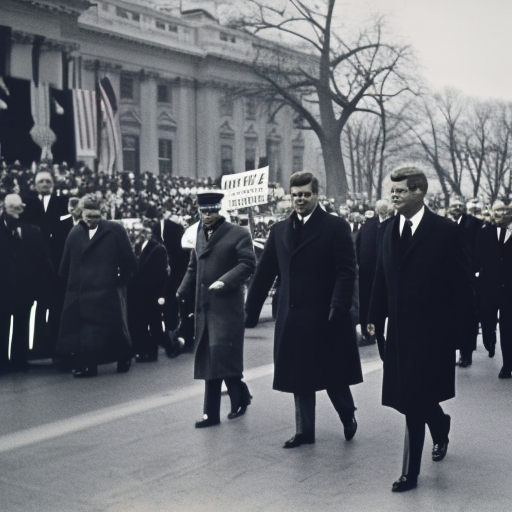Summary:
The 1961 presidential inauguration of John F. Kennedy marked a significant moment in American history. Kennedy, the 35th President of the United States, delivered a memorable inaugural address that emphasized unity, progress, and the need for global cooperation. His speech set the tone for his presidency and resonated with the American people, inspiring a sense of hope and optimism for the future.
The Inauguration:
On January 20, 1961, John F. Kennedy was sworn in as the 35th President of the United States. The inauguration took place on the east portico of the United States Capitol in Washington, D.C. Thousands of people gathered to witness the historic event, including dignitaries, politicians, and ordinary citizens. The inauguration ceremony was broadcasted on television, allowing millions of Americans to watch the proceedings from their homes.
Kennedy’s Inaugural Address:
In his inaugural address, Kennedy delivered a powerful and memorable speech that outlined his vision for America and the world. He emphasized the importance of unity and called on Americans to work together to overcome the challenges facing the nation. Kennedy famously stated, “Ask not what your country can do for you – ask what you can do for your country.” This line encapsulated his belief in the collective responsibility of citizens to contribute to the betterment of society.
Themes and Messages:
Kennedy’s inaugural address touched on several key themes. He spoke about the need for progress and innovation, urging Americans to embrace change and strive for excellence. He emphasized the importance of civil rights and equality, promising to fight against discrimination and injustice. Kennedy also addressed the Cold War and the threat of nuclear weapons, expressing his commitment to peace and diplomacy.
Impact and Legacy:
Kennedy’s inaugural address had a profound impact on the American people and the world. His message of unity and collective responsibility resonated with millions of Americans, inspiring a sense of hope and optimism. Kennedy’s presidency was marked by significant achievements, including the establishment of the Peace Corps, the successful handling of the Cuban Missile Crisis, and the advancement of the civil rights movement. However, his time in office was tragically cut short by his assassination in 1963.
Conclusion:
The 1961 presidential inauguration of John F. Kennedy was a historic moment that set the stage for his presidency. Kennedy’s inaugural address, with its emphasis on unity, progress, and global cooperation, resonated with the American people and inspired a sense of hope for the future. His presidency, although brief, left a lasting impact on the nation and the world. Kennedy’s legacy continues to be celebrated for his vision, leadership, and commitment to public service.












